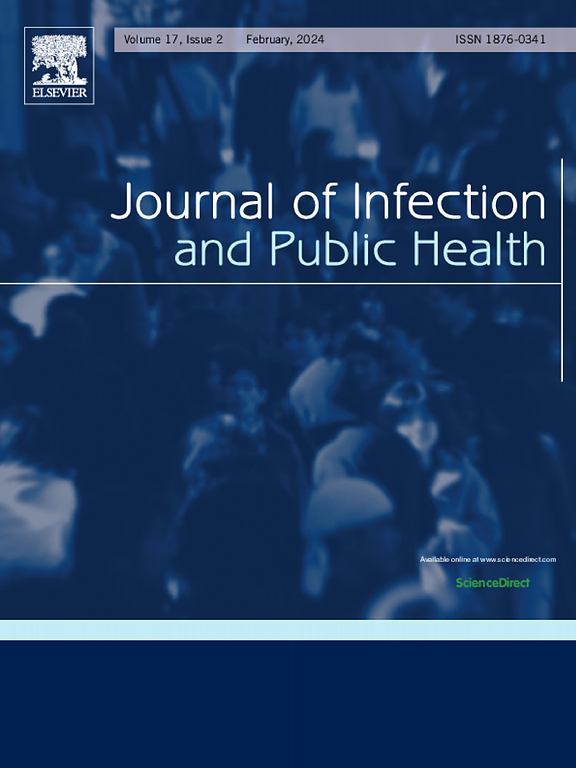麻疹暴发应对:来自印度和世界的监管和公共卫生观点
IF 4.7
3区 医学
Q1 INFECTIOUS DISEASES
引用次数: 0
摘要
麻疹,以前被称为猴痘,已重新成为一个重大的全球卫生问题,其特点是其意想不到的地理传播和不断变化的临床特征。最初在中非和西非流行,最近的疫情强调了其持续人际传播的潜力,对世界各地的公共卫生系统构成挑战。目的研究全球麻疹流行病学和影响,同时强调全球监管机构和公共卫生组织的反应。此外,它还试图评估印度解决这一问题的战略方针,确定现有的研究差距,并提出今后加强全球卫生防备的方向。方法对同行评议文献、世卫组织报告和国家政策文件进行全面审查,以综合目前关于Mpox传播、全球和区域应对、法规遵从以及不断变化的地缘政治格局和印度扩大全球卫生领导潜力的知识。结果全球对Mpox的反应突出了监测能力、监管准备以及获得诊断和疫苗方面的差异。虽然《国际卫生条例》(2005年国际卫生条例)等国际机制促进了协调一致的应对措施,但各区域的实施情况各不相同。尽管在疫苗可得性和风险沟通等领域仍然存在挑战,但印度的应对措施通过加强监测、扩大诊断范围和遵守世卫组织指南显示出了适应性。结论天花激发了加强全球卫生治理和具有复原力的国家系统的呼吁。通过解决传播、疫苗开发和监管方面的研究差距,同时采用“同一个健康”方针,促进监管协调和公平的资源分配,我们可以为防止疫情和确保我们全球社区的卫生安全的未来铺平道路。本文章由计算机程序翻译,如有差异,请以英文原文为准。
Mpox outbreak response: Regulatory and public health perspectives from India and the world
Background
Mpox, formerly known as Monkeypox, has re-emerged as a significant global health concern, marked by its unexpected geographic spread and evolving clinical profile. Initially endemic to Central and West Africa, recent outbreaks have underscored its potential for sustained human-to-human transmission, posing challenges to public health systems worldwide.
Objective
This paper aims to examine the global epidemiology and impact of Mpox, while also highlighting the responses from regulatory bodies and public health organizations worldwide. Additionally, it seeks to evaluate India's strategic approaches to addressing this issue, identify existing research gaps, and propose future directions to enhance global health preparedness.
Methods
A comprehensive review of peer-reviewed literature, WHO reports, and national policy documents was conducted to synthesize current knowledge on Mpox transmission, global and regional responses, and regulatory compliance along with shifting geopolitical landscape and India’s potential for expanded global health leadership.
Results
The global response to Mpox has highlighted disparities in surveillance capacity, regulatory readiness, and access to diagnostics and vaccines. While international mechanisms such as the International Health Regulations (IHR 2005) facilitated coordinated responses, implementation varied across regions. India’s response has demonstrated adaptability through surveillance enhancements, diagnostic scale-up, and alignment with WHO guidelines, although challenges remain in areas such as vaccine availability and risk communication.
Conclusion
Mpox inspires a call for stronger global health governance and resilient national systems. By addressing research gaps in transmission, vaccine development, and regulations, while embracing a One Health approach and promoting regulatory harmonization and equitable resource distribution, we can pave the way for a future that prevents outbreaks and ensures the health security of our global community.
求助全文
通过发布文献求助,成功后即可免费获取论文全文。
去求助
来源期刊

Journal of Infection and Public Health
PUBLIC, ENVIRONMENTAL & OCCUPATIONAL HEALTH -INFECTIOUS DISEASES
CiteScore
13.10
自引率
1.50%
发文量
203
审稿时长
96 days
期刊介绍:
The Journal of Infection and Public Health, first official journal of the Saudi Arabian Ministry of National Guard Health Affairs, King Saud Bin Abdulaziz University for Health Sciences and the Saudi Association for Public Health, aims to be the foremost scientific, peer-reviewed journal encompassing infection prevention and control, microbiology, infectious diseases, public health and the application of healthcare epidemiology to the evaluation of health outcomes. The point of view of the journal is that infection and public health are closely intertwined and that advances in one area will have positive consequences on the other.
The journal will be useful to all health professionals who are partners in the management of patients with communicable diseases, keeping them up to date. The journal is proud to have an international and diverse editorial board that will assist and facilitate the publication of articles that reflect a global view on infection control and public health, as well as emphasizing our focus on supporting the needs of public health practitioners.
It is our aim to improve healthcare by reducing risk of infection and related adverse outcomes by critical review, selection, and dissemination of new and relevant information in the field of infection control, public health and infectious diseases in all healthcare settings and the community.
 求助内容:
求助内容: 应助结果提醒方式:
应助结果提醒方式:


